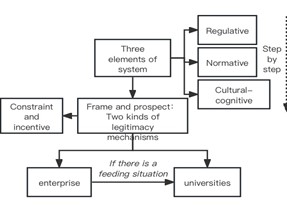

Volume 4
Published on March 2024This study investigates the influencing factors of exports in Sichuan Province in the context of the Belt and Road Initiative. Based on the panel data of Sichuan's exports to fifty-three countries along the Belt and Road from 2011 to 2022, this study tests eleven potential influencing factors using an expanded trade gravity model. And the results show that the economic development level of both Sichuan and the Belt and Road member countries have significant positive correlation with the export volume; while the distance, foreign merchant participation in Sichuan, exchange rate of RMB and human capital level of Sichuan are significantly negative. Moreover, the trade potential coefficient of each Belt and Road member country is calculated to decide the trade type. Lastly, the c onclusions and strategical suggestions are put up to further explore the trade potential with Belt and Road countries and expand Sichuan’s export volume.

 View pdf
View pdf



Nowadays, the employment situation is grim, and the postponement and reemployment of college students have become the mainstream employment solutions. School-enterprise cooperation and university business incubation are particularly important at this juncture. From the perspective of organizational sociology, it is a win-win way for enterprises to place talent training before universities. In this process, there will be institutional construction born from the perspective of new institutionalism, emphasizing three institutional elements: regulatory, normative and cultural cognitive [1]. There are both restrictions and constraints on talents within the framework, as well as rewards based on prospects and future. In the existing research in China, many scholars focus on the dilemma, relatively critical and examine it; but there is a lack of dismantling and research on extremely excellent cases. Therefore, the author conducts research through the new institutionalism perspective of organizational sociology, giving full play to its interdisciplinary (including sociology, economics, psychology, etc.) many roles, so that organizational sociology, a knowledge so rich and connotative, can complete a complete analysis and study through composite materials, and provide some insignificant reference experience and significance for the field.

 View pdf
View pdf


This paper provides an in-depth analysis of the dilemmas and paths currently faced by rural revitalization under the digital governance framework, using Xi'an, China, as an example. Rural revitalization is an important agenda in many developing countries, where integrating digital technologies into the governance process presents opportunities and challenges, focusing on how to use digitalization, a key component of modern governance, to promote socio-economic development in rural areas. This paper aims to reveal the complexities involved through analysis. The study is based on a mixed-methods approach, incorporating qualitative data from unstructured interviews with residents, as well as quantitative data from surveys and regional economic reports. It includes technology gaps, infrastructure constraints, digital literacy of the rural population, and how governance policies are adapted to local needs that affect the implementation and effectiveness of digital governance in rural revitalization. The study also explores the relationship between digital governance and rural revitalization, the relevance of digital governance ruralization, an analysis of rural digital governance, and rural digital governance practices. Ultimately, the thesis suggests potential ways to solve these dilemmas. And, it emphasizes the necessity that digital talent cultivation should be increased, new types of infrastructures should be improved, a rural governance system should be constructed, and policy frameworks for narrowing the urban-rural digital divide should be developed. This study contributes to the understanding of rural revitalization in the era of digital governance and provides insights into sustainable rural development and digital transformation. At the same time, the study results in the Xi'an region case may provide experience in solving similar situations globally.

 View pdf
View pdf


With the acceleration of urbanization, a large number of rural migrant workers have poured into cities, becoming an important driving force for urban construction and development. However, due to issues such as urban-rural disparities, inadequate social security, and lack of social trust, urban migrant workers face many difficulties that affect their sense of well-being and quality of life. This study quantitatively analyzes the well-being of migrant workers using data from the 2021 China General Social Survey, aiming to explore the impact of social security, social integration, and social needs on the well-being of urban migrant workers. Meanwhile, through literature review and theoretical analysis, the inherent connections and impact mechanisms among these factors are revealed. The results show that an improved social security system, enhanced social trust, and fulfillment of social needs can significantly enhance the well-being of urban migrant workers, providing important theoretical and practical support for achieving social harmony and promoting integrated urban-rural development.

 View pdf
View pdf



This article starts by studying the impact of the COVID-19 pandemic on the United States economy and then delves into the relationship between the pandemic and the economic mobility in U.S. In addition, this article also uses various models to predict the US economy, including vector autoregressive model, support vector machines, eXtreme gradient boosting, light gradient-boosting machine and the long short-term memory network, then comparing the prediction results of the above models to select the relatively optimal model. To test the model, the model is also used to predict Italy's economy and then XGBoost is selected. The limitations of the model will be proposed based on the predicted results. Based on the research, XGBoost model can be applied to forecast economic recession. With further study, we believe such forecast and our understanding of economic processes and economic recession can be improved, and the government can adopt proper policies to alleviate the economic recession.

 View pdf
View pdf



Green innovation is a crucial strategic measure for the construction of ecological civilization, promoting high-quality development, and achieving modernization with Chinese characteristics. Based on data from Chinese A-share listed companies from 2010 to 2021, this study explores the impact mechanism of CEO gender differences on green innovation from the perspective of CEO individual characteristics. The results show that CEO gender differences inhibit the green innovation performance of enterprises. A test of the mediating effect found that R&D investment plays a partial mediating role between CEO gender differences and green innovation performance.

 View pdf
View pdf


Real estate industry is important for every county, because is linked to the country's economic prosperity, social stability and people's happiness. In recent years, a severe problem with real estate in China has been that some speculators have used media propaganda to encourage people to buy houses, raise prices by changing the structure of supply and demand, and then turn around and make a profit. In order to curb this phenomenon, China has proposed the "Three Red Lines" policy. With this policy, the Chinese government hopes to curb excesses in the real estate market, thereby stabilizing housing prices and enhancing the well-being of its people. In order to assess the effectiveness of this policy, this paper will use both literature analysis and case study methodology to firstly assess the impact of this policy on real estate and analyze its problems. On this basis, Evergrande Group is selected as a research case to point out the drawbacks of the current policy based on the principles of behavioral finance. On this basis, based on the literature and our own experience, we put forward corresponding suggestions. The aim of this paper is to reveal the problems of existing policies and provide suggestions for the sustainable development of China's financial industry.

 View pdf
View pdf




